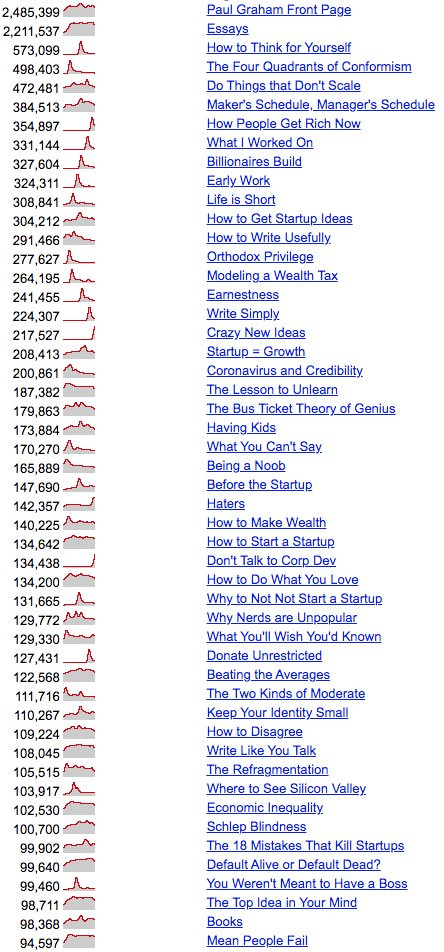Quick Thoughts: Truth, Overwork-from-Home, Benford's Law and more
(This is my weekly list of quick thoughts based on the most interesting topics I found in my feed.)
Quote of the week:
The purpose of free speech isn't to prevent suppression of the truth. Nobody is interested in the truth anyway. Free speech exists so that you can fight the establishment's lies with your own lies.
—paraphrased from Bryan Caplan
Fake News
Why is there so much fake news? Because that’s what people want.
And how should you convince a believer that their belief is untrue? Providing facts and data will often backfire. The backfire effect happens because a direct contradiction of a person’s belief results in them going on the defensive, which triggers their fight-or-freeze response.

A Truth vs. The Truth
Of course, this is saying the same thing as the poem about the six blind men who went to see the elephant, but it beautifully captures not only the fact that people have incomplete information, but also that there can be multiple levels of it. Someone should do a galaxy brain meme with this tweet.
This is related to what I said in the update 2 weeks back: if you think a top business or political leader is dumb, most likely you are mistaken, and you aren’t aware of all the information or all the constraints that they have. aka “If Kabil Sibal is such an idiot, how come you’re not the prime minister”.
AI mistakes vs non-AI mistakes


Interesting thread by a machine-learning engineer pointing out how badly “drug sniffing dogs” would fail the same tests that are used to validate machine-learning algorithms.
Along similar lines, see this quote by Daniel Kahneman (the economist/psychologist who is one of the founders of the field of behavioural economics, and 2002 Nobel memorial prize winner) related to the difference in how people view AI mistakes vs similar mistakes in natural processes. This also explains why
As more and more of the world is eaten by AI, we need to start thinking carefully about such aspects of AI.
Lessons
Here’s the first part of a tweet. What lessons do you think can be drawn from this event?
Think about that a bit before reading the full tweet below:

But, that’s not the only lesson to be learnt from this. Here’s another takeaway:


Overwork
Most people are working more time working now than they were spending on work + commute during the lockdown. More than one-third of them are working “much more”. This is not a good situation.
Why? Here’s a report which says that long working hours cause strokes and heart-attacks resulting in 745,000 deaths per year.
If you are a decision-maker at a company, do you think this is a problem? If not, why not? If yes, what are you doing about it?
Did You Know: Benford’s Law
Paul Graham tweeted this. And Paul’s essays are must-reads for everyone. But that’s not the point of this section. This follow-up is more interesting:


Benford’s Law claims that in many real-life data-sets, if you look at the first digit of the numbers involved, 1 appears far more often than 2, which appears more often than 3 and so on.

This law has been used to detect instances of fraud in elections (there is a possibility of fraud if the voter counts don’t follow Benford’s law) or in data sets published in scientific papers, and even fraudulent data in Government numbers.
Read the Wikipedia article, it is quite interesting.
Subscribe and Share
Please share this post with others who might find it interesting
If you came to this page via a link someone sent you, you can subscribe to get the latest updates via email.











